Yemen
Hundreds of mourners gathered in Sanaa on Monday for the funeral of senior Houthi officials, including Prime Minister Ahmed al-Rahawi, who were killed in what is described as an Israeli airstrike last week. The somber event, punctuated by anti-American and anti-Israeli chants, coincided with a new Houthi missile attack on a Red Sea oil tanker, signaling a dangerous escalation in regional tensions.
The funeral procession for Ahmed al-Rahawi and several ministers took place at the Shaab Mosque in the Yemeni capital.
The service was broadcast live by Al-Masirah TV, a Houthi-controlled media outlet.
Attendees mourned the loss of key figures in the rebel government, including the ministers of foreign affairs, media and culture, and industry.
Inside the mosque, prayers were accompanied by chants against Israel and the United States, reflecting the group's stance in the ongoing regional conflict.
Significance of the targeted strike
Al-Rahawi represents the highest-ranking Houthi official killed to date in the Israeli-U.S. offensive against the Iranian-backed group.
The airstrike, which occurred on August 24th, also injured other government officials, though specific details were not provided.
According to an earlier Houthi statement, the officials were targeted during a "routine workshop held by the government to assess its activities and performance over the past year," suggesting the strike hit a governmental meeting.
A cycle of escalation
The lethal airstrike did not occur in a vacuum.
It came just three days after the Houthis claimed to have launched a ballistic missile equipped with a cluster warhead toward Israel, which they described as their first use of such a weapon since 2023.
This pattern of attack and counter-attack highlights the increasingly volatile tit-for-tat dynamic between the Houthis and the Israeli-U.S. alliance.
Regional implications and retaliatory strike
In a development that points to a further widening of the conflict, the Houthis announced on Monday—the day of the funeral—that they had fired a missile at an oil tanker off the coast of Saudi Arabia in the Red Sea.
This attack threatens to reignite the group's campaign against commercial shipping in one of the world's most vital maritime corridors, a strategy they had largely paused in recent months.
The dual events of a mass funeral and a new military claim underscore the group's intent to respond to the loss of their leaders with renewed force.





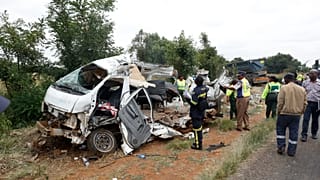

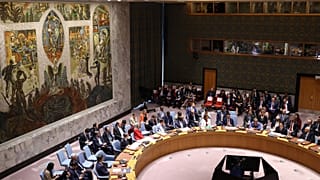
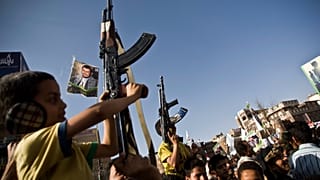
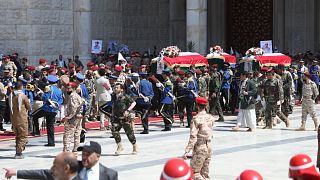
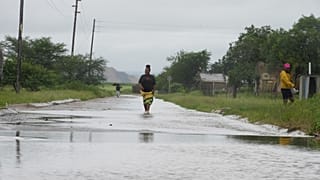
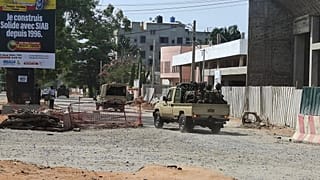
![Senegal stun Morocco in AFCON 2025 final to retain continental crown [Football Now]](https://images.euronews.com/articles/stories/09/61/76/30/320x180_cmsv2_64f668d8-9f3a-50c3-9477-243de96f35d5-9617630.jpg)
00:00
Iran's President Pezeshkian urges security forces not to target peaceful protesters
01:15
Sudanese nationals among prisoners to be freed in Yemen-Houthi deal
00:09
Iran introduces new gasoline price tier
01:13
Macron slams Gaza offensive, signals Iran sanctions snapback
00:53
Muslims around the world mark Prophet Muhammad's birthday
01:03
Israeli airstrike in Yemen reportedly killed Houthi prime minister